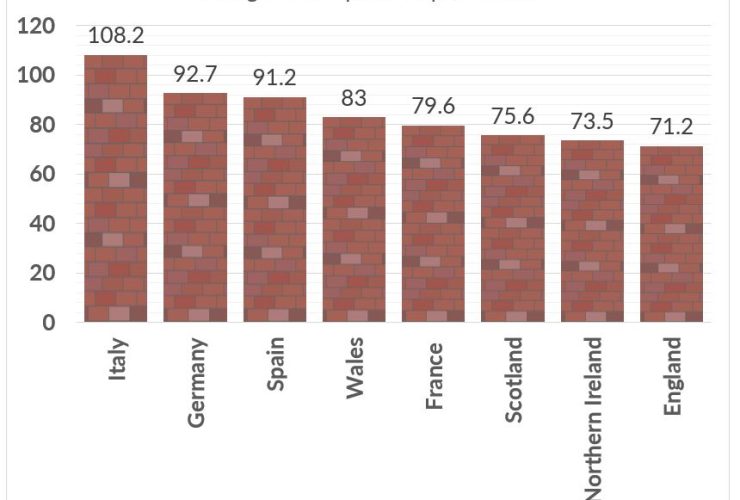
Housing equality and race for space
“The virus has exposed how quickly people can pivot to digital models,” says Martha Lane Fox, former digital czar and government post-Covid culture adviser. She points out that ”lockdown has also exposed the alarming inequality in the UK workforce.”
She goes on to say “Offices are generally egalitarian spaces: same computers, same systems, same lousy canteen”. From home “we are not equal”, points out Richard Clarke, partner at Matthews & Goodman. “Some have a dedicated desk in a study larger than a modern flat. Others have coffee tables, piled with books to rest their laptops (of varying quality) on, or kitchen tables that need to be cleared at meal times. Some enjoy fast broadband while others compete for limited bandwidth with gamers and other WFHers.” Lower-income households are far less likely to see homeworking as a long-term solution. (Evening Standard 26/5/20)
This got me thinking about my role project managing the design and delivery of social and affordable housing.
If, as practitioners in the social housing arena, we are helping to build an equal society we will need to do more to balance the books for our residents. Home working is now a reality for many workers, I cannot see a return to 5 days a week working at an office any time soon. Many of those now working from home will be tenants and shared owners.
Factor in the problems families have had trying to educate their children within the confines of their homes and the issues children face finding space to be able to work and one quickly concludes that our always too small homes are – well, too small. England lags behind many countries in the accommodation our homes provide as evidenced in the table below:
And this is a problem that has been getting worse, in 2018 LABC published a report “what is the average house size in the UK.” Using property sites such as Rightmove and Zoopla, they analysed data on 10,000 houses built in each decade going all the way back to the 1930s.
And their results in their own words – “and yes, Britain’s houses really are getting smaller!”
Obviously not all homes are getting smaller and many larger (4 bed plus) outright sales home developers have been featuring home offices in their latest design playbook, a recognition that even pre-covid, those with larger incomes were already gaining more choice about where and how they work.
Space comes at a premium and we all know the costs involved in adding square footage when trying to maintain viability and affordability.
There is no silver bullet and it will require a series of incremental changes if we are to win the space race. We have talked for years about utilising the roof space maybe now is the time to do that consistently. In our discussions with precision engineered and modular homes manufacturers they have been great enthusiasts and I know there are clever architects and designers out there working these ideas through and I’d be pleased to see some shared on LinkedIn / Twitter.
What about these great ideas being developed for smaller spaces, could they make a contribution to enabling WFH? Foldaway fitted facilities, flexible use of space all have a place in a post covid world and need to be part of our thinking.
I don’t have all the answers but what I do know, is that from here on in, I need to challenge myself, my clients and their designers to find the space that Covid has highlighted the need for.
News & Insights
Read the latest housing sector news, blogs, and commentary from ARK.

Kirsty Wells to join the team as Assistant Director
By Helen Scurr ·We are excited to announce a senior figure in the social housing sector will be joining our consultancy team. Kirsty …

Building Safety
By Luke Beard ·The deadline for registering an existing higher risk building (HRB) with the regulator and submitting the required key building information …

Are you ready for the Supported Housing (Regulatory Oversight) Act 2023?
By Nick Sedgwick ·If you are a supported housing provider, you need to be aware of the new regulations that are about to …
Subscribe to our newsletters for the latest industry insights
Our newsletters and reports will keep you updated on topical issues from the sector as well as what’s happening at ARK.
